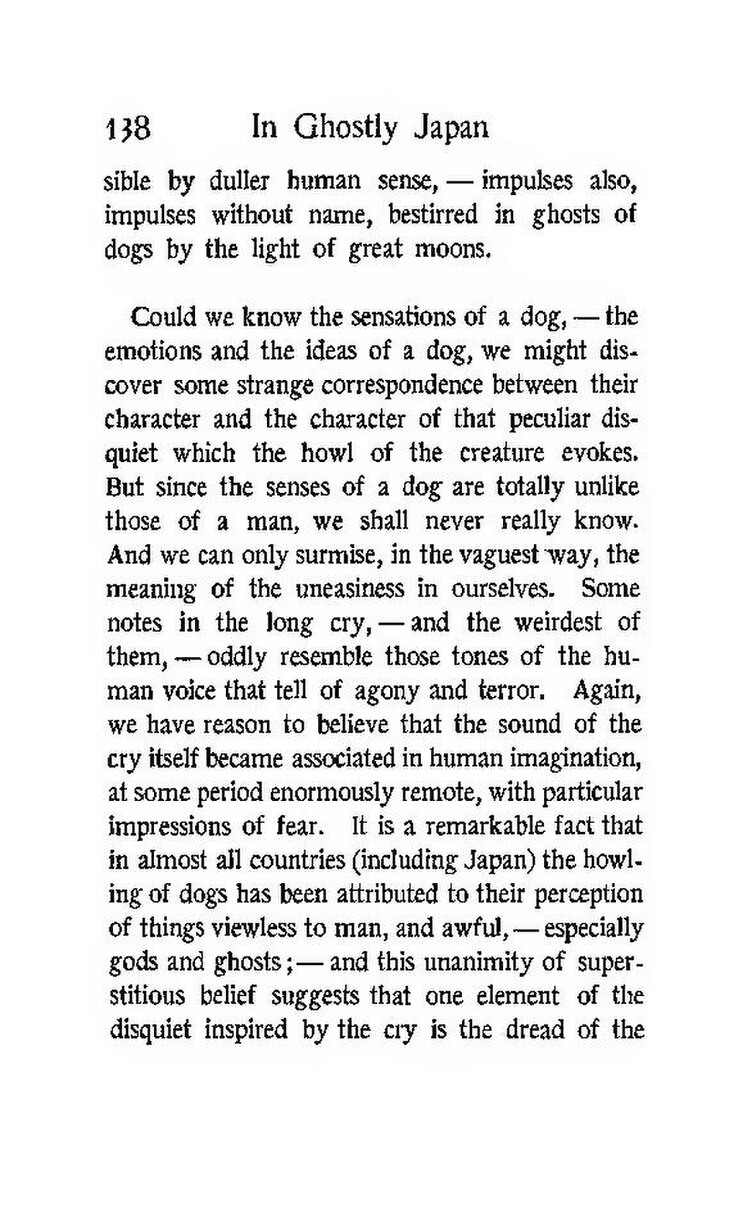sible by duller human sense,—impulses also, impulses without name, bestirred in ghosts of dogs by the light of great moons.
Could we know the sensations of a dog,—the emotions and the ideas of a dog, we might discover some strange correspondence between their character and the character of that peculiar disquiet which the howl of the creature evokes. But since the senses of a dog are totally unlike those of a man, we shall never really know. And we can only surmise, in the vaguest way, the meaning of the uneasiness in ourselves. Some notes in the long cry,—and the weirdest of them,—oddly resemble those tones of the human voice that tell of agony and terror. Again, we have reason to believe that the sound of the cry itself became associated in human imagination, at some period enormously remote, with particular impressions of fear. It is a remarkable fact that in almost all countries (including Japan) the howling of dogs has been attributed to their perception of things viewless to man, and awful,—especially gods and ghosts;—and this unanimity of superstitious belief suggests that one element of the disquiet inspired by the cry is the dread of the
